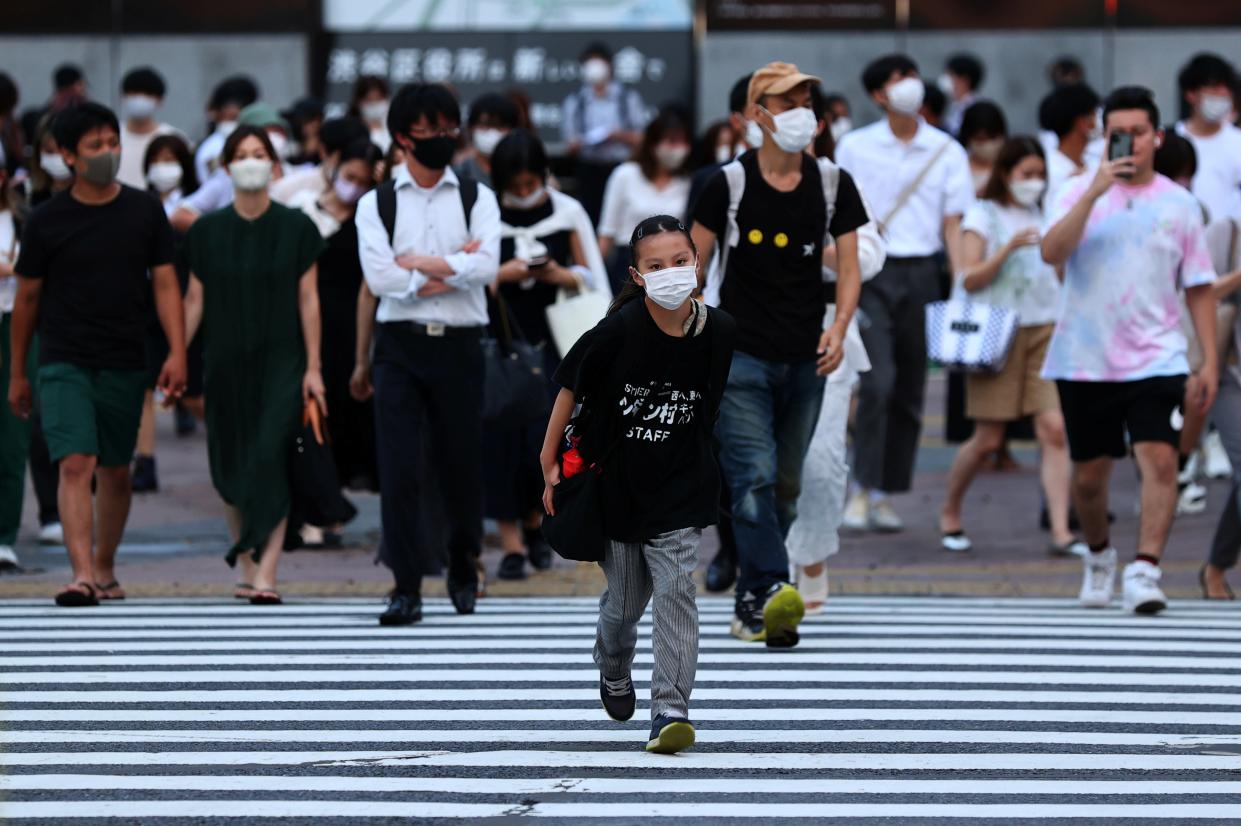Japan to limit hospital care has Covid outbreak enters ‘new phase’

The Japanese government today introduced a controversial new policy asking Covid-19 patients with mild symptoms to self-isolate at home instead of going to hospital.
Outlined in parliament by Prime Minister Yoshihide Suga, the new plan aims to secure hospital beds only for serious cases of Covid-19, or those at risk of becoming gravely ill with the virus.
The new strategy comes amid a record 4,166 reported daily Covid-19 cases in Tokyo, the host city of the Olympic Games.
And it follows a collapse of the healthcare system in Osaka in April, when a sudden spike in infections there led to overwhelmed hospitals—and some Covid-related deaths at home due to a shortage of hospital beds, the AP reported.
Defending the new policy, the Minister of Health, Labour and Welfare (MHLW), Norihisa Tamura, said, “The pandemic has now entered a new phase,” the AP reported. “Hospital capacity is limited.”
There are currently some 14,000 patients with mild symptoms isolating at home—which is more than a 10-fold increase from last month, according to AP. Another 8,000 people are waiting to be hospitalised or cared for in specially re-purposed hotels.
Responding to the increasing crisis, Mr Suga this afternoon called an emergency meeting with five key ministers, including from the Ministry of Economic Revitalization and the MHLW.
Officials considered adopting further restrictions beyond the current state of emergency declaration in Tokyo—the fourth since the virus hit Japan in early 2020—and pre-emergency measures in other regions of the country.
What is more, these new measures are being considered under the assumption that infections in Tokyo will exceed 5,000 daily Covid-19 cases, local broadcaster TBS reported.
In addition, the prime minister announced that the government was on target to achieve its goal of providing a double dose of vaccinations for the majority of the seniors—or around 40 percent of the population—by the end of the month.
However, the more infectious Delta variant that is currently spreading in Japan, which is responsible for the majority of new infections, is doing so among people under 40 years of age, most of whom remain unvaccinated.
And it is this demographic that is largely ignoring stay-at-home and other social distancing requests under the state of emergency declaration and other Covid-19 counter-measures, thereby exacerbating the crisis.
This raises questions over the government’s current anti-Covid-19 strategy, especially whether the vaccination program and social distancing measures can keep up with infections, widespread indifference among the young, and a looming hospital bed crisis.
Meanwhile today, the first Covid-19 infection cluster was discovered inside the Tokyo 2020 Athletes Village, local broadcaster TBS reported.
The cluster involved 12 members of Greece’s artistic swimming team, of whom four athletes and one official tested positive for Covid-19 on August 3.
While the rest of this close group tested negative, the proximity to those who are positive is a cause for concern.
To mitigate further infection, all the Olympians and officials involved in the cluster were transferred yesterday to an isolation facility, thereby ending their participation in the Games.
“Yes, I feel sad about that. Yes, so sad, because I know how much they tried to be here; to compete. So I’m sad. We were expecting them to be in the medals races,” a spokesperson for the Greek team told domestic media.
As of August 3, the number of Covid-19 cases directly attributable to the Tokyo 2020 Games stood at 322.
Overall in Japan, around 9,500 new cases were reported today, compared to around 8,500 when the Games officially opened on July 23.

 Yahoo News
Yahoo News 
